
Today is Global Recycling Day. But what exactly is it?
We often hear about recycling and are encouraged to do it. We have different coloured bins to dispose of our rubbish correctly, and we’re told what can and can’t be recycled. But let’s be honest, recycling can be confusing. Even though nearly 9 out of 10 households in the UK recycle regularly, sometimes people fall victim to throwing a plastic bottle in the general waste bin or even outside.
Global Recycling Day is a recycling initiative that encourages us to think about waste differently and celebrate the importance of recycling. After all, we all live on this planet, so it’s important to take care of it. Recycling reduces the number of raw materials we use, reduces our energy usage, improves our water and air quality, and combats climate change.

Unfortunately, littering is still a huge issue in the UK. Keep Britain Tidy estimates two million pieces of rubbish are dropped every day across Britain, which equates to 23 items of rubbish being dropped every second. Plus, a large amount of the UK’s rubbish is still sent to landfill (24% in 2016).
Did you know 1.5 million tonnes of plastic waste derives from water bottles?
Disposing of our waste incorrectly has a large impact on wildlife
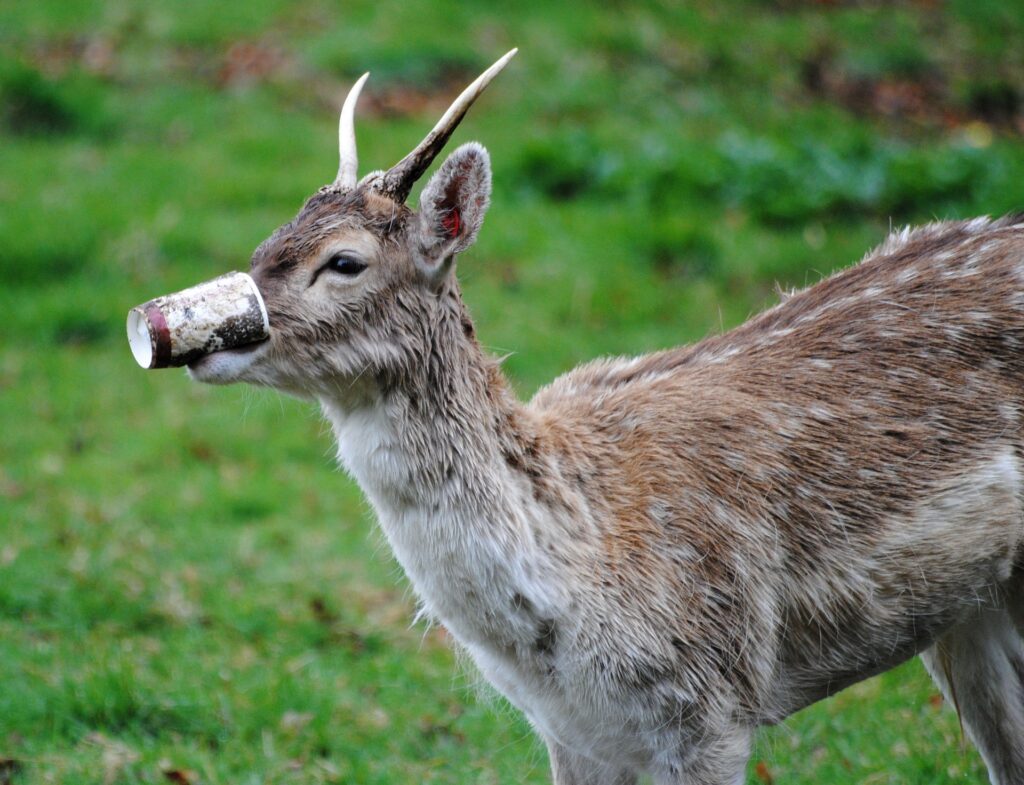
The impact of not caring about how we dispose of our waste is huge and irreparable in many cases. Not only does it threaten the animal, but it destroys their habitat and environment. On average, the RSPCA receive 14 calls a day about animals affected by litter, but the actual number of animals impacted by litter is likely to be much higher. Plus, around one million seabirds are dying due to plastic every year!
Here are some examples:
- Animals can get caught in plastic can holders and choke or experience deep cuts
- Wildlife suffocating in litter such as plastic bags
- Wildlife getting trapped in cans or jars
- Wildlife getting injured on broken glass
- Litter damaging the nests and homes of animals
Items that seem harmless to us can become dangerous when an animal comes across them. The wind can blow litter for miles, and it can land in rivers, oceans, fields, forests, gardens and other places.
Impact of litter on the red squirrel
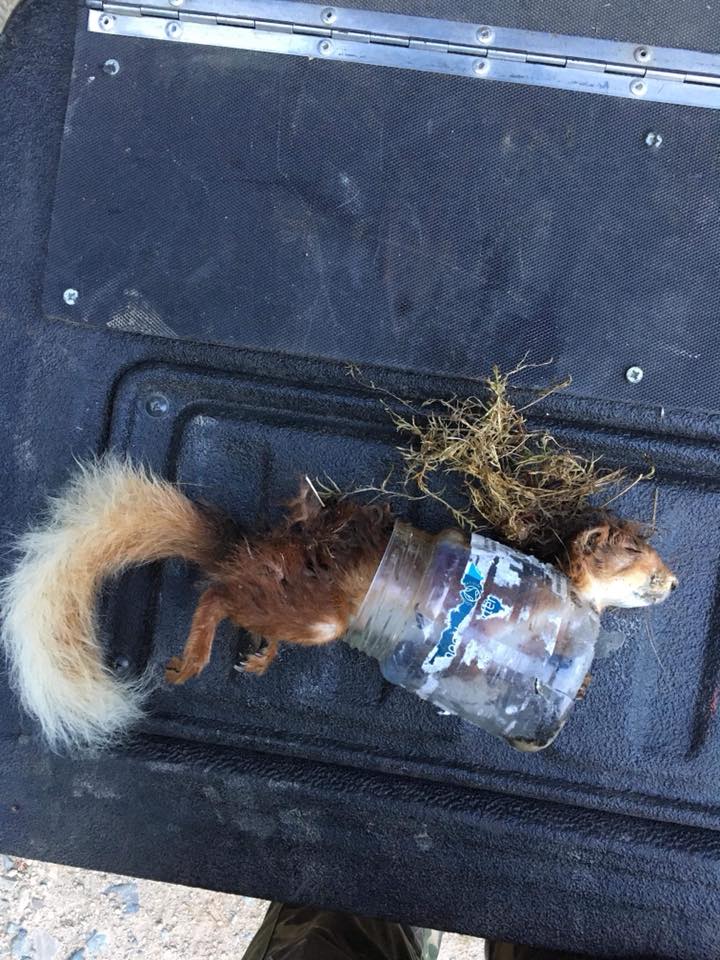

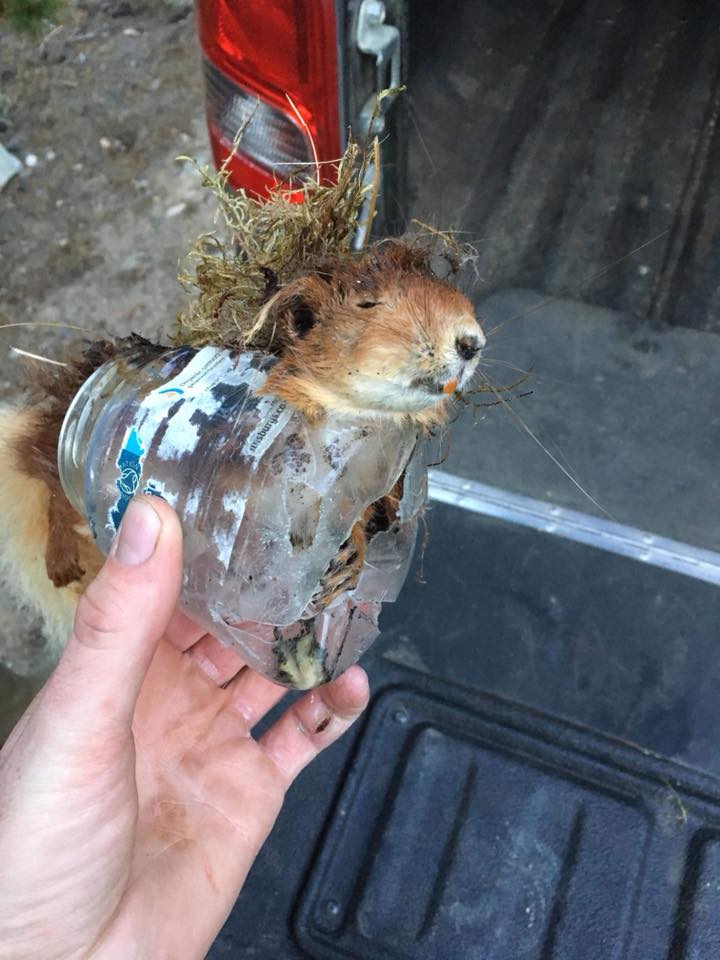
The red squirrel is one species suffering at the hands of humans, as its population has declined to around 140,000 in the UK in recent years. Sadly, the rubbish we throw away has, directly and indirectly, caused the death of some of these beautiful animals. They get trapped, tangled and suffocate on the rubbish that ends up in their habitat, and they can suffer for days trying to escape, waiting for someone to come across them.
On top of this, diseases can spread from one animal to another when they are in contact with the rubbish. For example, squirrel pox is a virus that spreads from grey squirrels to red squirrels, but it is deadly for red squirrels, and grey squirrels are not affected by it. In most cases, the virus will result in the death of the red squirrel through starvation and dehydration.
So what can we do?
The good news is there’s a lot we can do to reduce the impact of our waste on wildlife. Before you throw your waste away, make sure to go through the 5 R’s in the following order: refuse, reduce, reuse, rot and recycle.

1. Refuse
Undoubtedly, the best thing to reduce your waste is to refuse it. Saying no to wasteful or non-recyclable is difficult to do all the time, but it is both liberating and effective.
For example, next time you go to the supermarket, say no to produce wrapped in plastic.

2. Reduce
If you need to use something, why not reduce the amount you use? Use less harmful, wasteful and non-recyclable materials to ensure less waste goes to landfill and reduce our harmful impact on the environment.
For example, if you need to print something, reduce the amount of paper you use by printing double-sided.
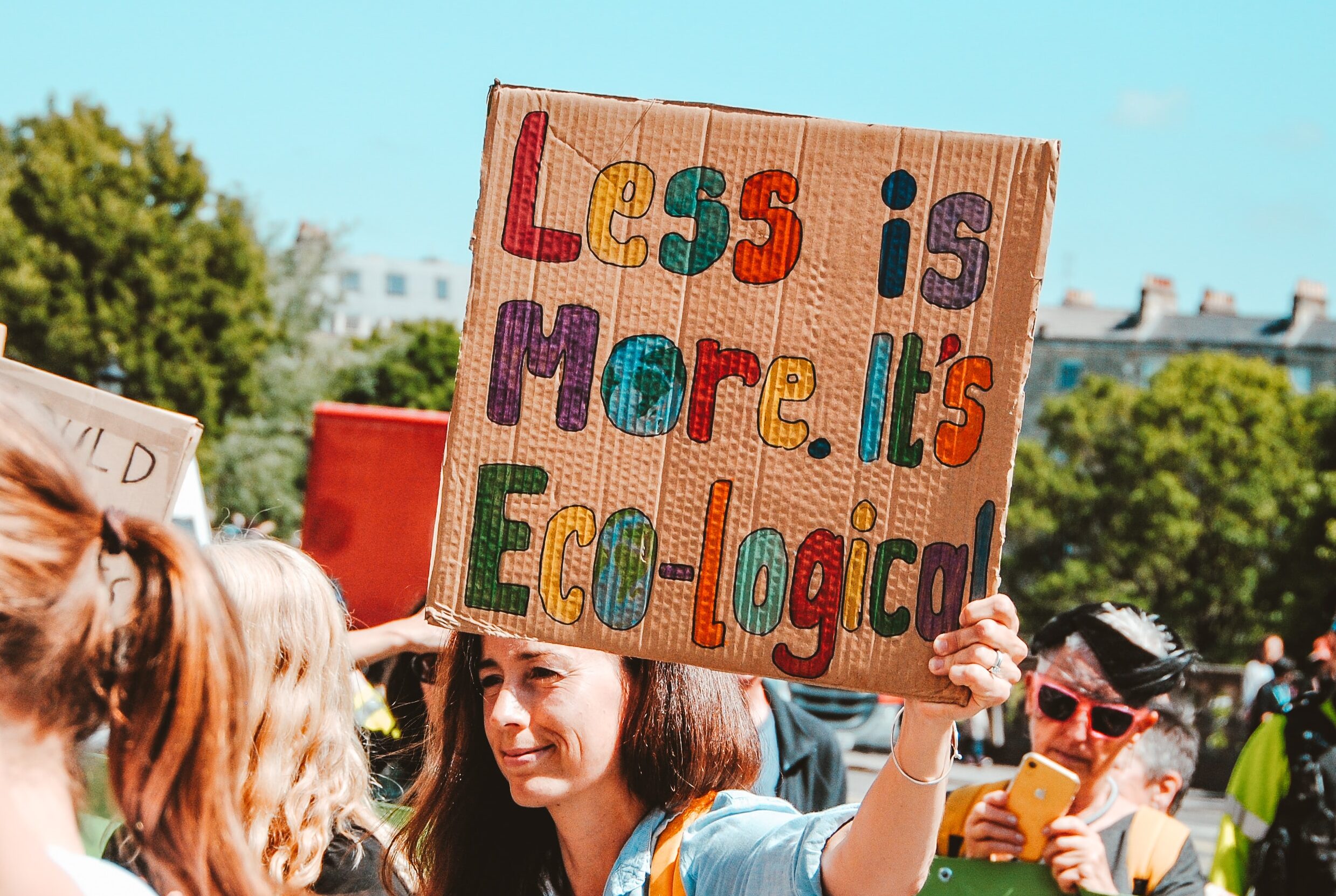
3. Reuse/Repurpose
We’re all guilty of being a bit wasteful, such as buying a new jumper if one rips. That’s why it’s important to give items a new lease of life. Repairing or repurposing items is a great idea. Not only does it reduce waste, but it’s a chance to learn a new skill, use your creative flair and have a bit of fun.
For example, you could stitch up an old jumper or use an old welly as a plant pot! The possibilities are endless.
Also, many of us use household items that are thrown away after just one use. This is not only wasteful, but it’s also expensive. Why not switch some household items to reusable alternatives?
For example, change paper towels to a cotton or microfibre cloth and tin foil to a food container or reusable lid.
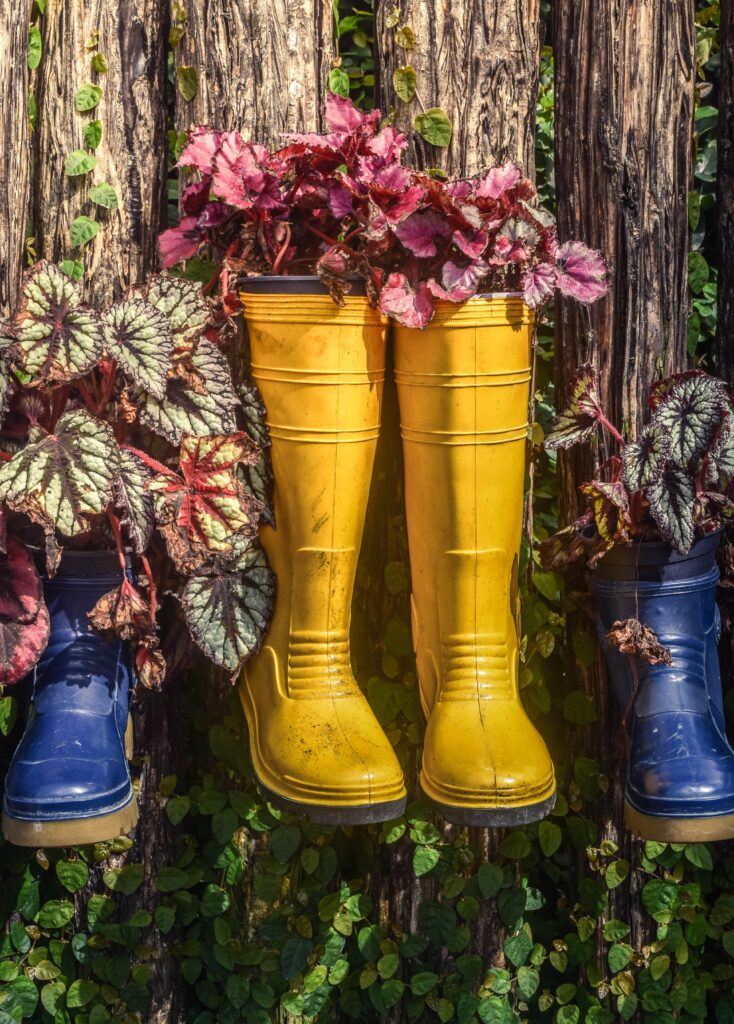
4. Rot
The UK produced around 9.5 million tonnes of food waste in 2018. It’s no surprise then that rot is one of the 5 R’s. But why should food not be thrown into the waste bin to go to landfill? It isn’t able to break down and it releases methane into the atmosphere, contributing to climate change.
Put your organic waste into a compost bin and it will turn into compost over time, which is full of nutrients perfect for your plants and soil. If you’re new to composting, you can likely purchase a bin and get all the information you need on your local council’s website.
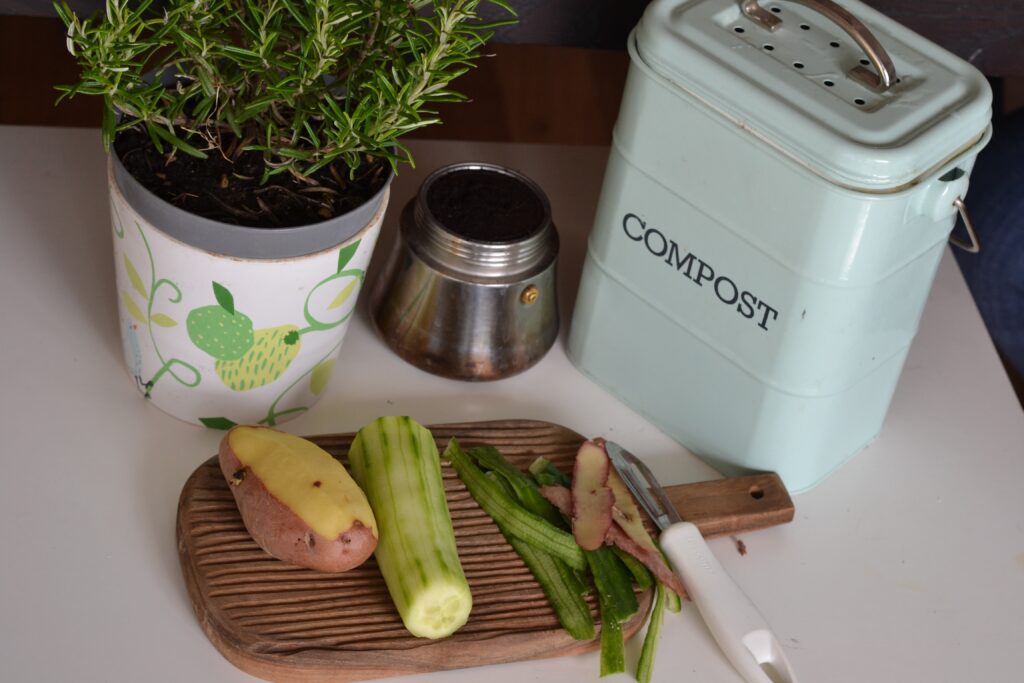
5. Recycle
If you’ve made your way through the other steps, the next option is to recycle by disposing of waste in the correct bin. If you are unsure whether something can be recycled or how to recycle it, head over to your local council website.

Reclaiming Reds
Want to know more about what we do for the red squirrel population in the UK or our volunteering opportunities? Head over to our website.
